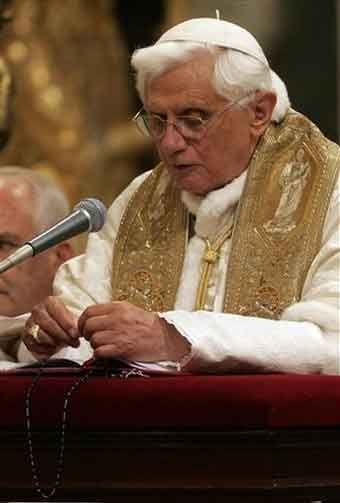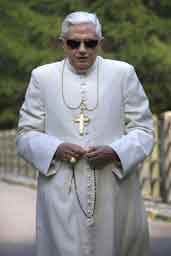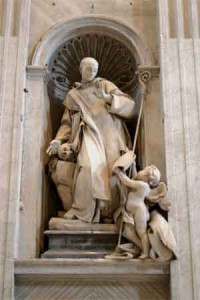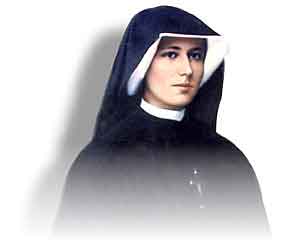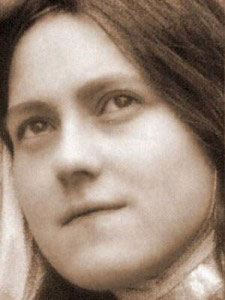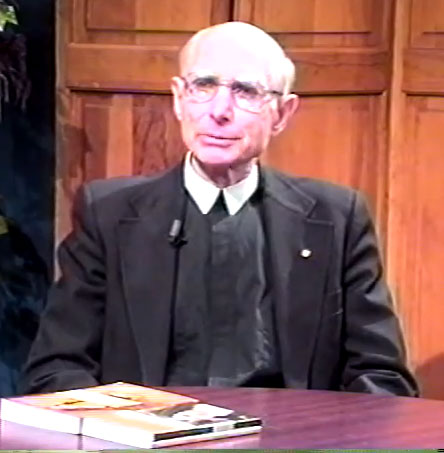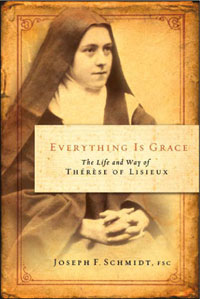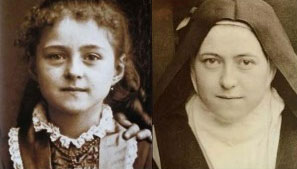Podcast (devotionals-prayers): Play in new window | Download (Duration: 1:00 — 940.9KB) | Embed
St. Teresa of Avila was a Carmelite nun and a Spanish mystic. She is also known as “St. Teresa of Jesus” or the “Great St. Teresa” to distinguish her from another Carmelite nun, St. Therese of Lisieux (1873-1897) known as “The Little Flower. St. Teresa of Avila is a very much-loved contemplative Catholic saint
She was Teresa de Cepeda y Ahumada, a child of a noble family, born on March 28, 1515 at Avila in Castile. Her mother died when she was fifteen. This event upset her so much that her father sent her to an Augustinian convent in Avila. Her father brought her home after a year and a half when she became ill. After being exposed to monastic life she wished to become a nun, which her father forbade as long as he was living. At the age or twenty or twenty-one she secretly left home and entered the Incarnation of the Carmelite nuns in Avila, after which her father dropped his opposition.
Much of St. Teresa’s life was plagued by illness. In 1538 it appears she suffered from malaria when her father took her from the convent and placed her under doctors care. Despite of this she remained ill and undertook experimental cures by a woman in the town of Becedas. These methods left her in a coma for three days and not able to walk for three years. It was during this time of illness and convalescence that she took to daily mental prayer, which led to her experiences with mystical prayer. She credited her recovery to St. Joseph.
St. Teresa never sought out the mystical experiences that she experienced, but resigned herself to God’s will and considers the experiences a divine blessing. She spent long hours in meditation that she called the “prayer of quiet” and the “prayer of union.” During such prayers she frequently went into a trance, and at times entered upon mystical flights in which she would feel as if her soul were lifted out of her body. She said ecstasy was like a “detachable death” and her soul became awake to God as never before when the faculties and senses are dead.
St. Teresa being a contemplative is well known for her discussion on the grades of prayer through which the soul is focused upon the love of God passes before reaching the “central mansion” of the soul, where Christ lives. She distinguished sharply between the essence of mysticism, which is loving the contemplation of God infused by God’s own love and grace, and the tangential phenomena that may accompany the contemplative life, such as visions, audible sensations, ecstasy, levitation, and stigmata. She, as others, believed that Satan could manipulate such phenomena to corrupt the gullible even when they come from God. St. Teresa felt that the Devil could twist such things in order to cause the individual to be more concerned with these manifestations than with their true mission of loving God entirely.
Although St. Teresa warned against taking the powers of the Devil too seriously, and advised that his powers should be despised (tener en poco). She said Satan was constantly active against Christians, especially the contemplative, trying intensely to block them from their goal of achieving absolute union with God. Although the Devil was powerless against the defense that Christ builds up in a faithful soul, he will rush in at the person’s weakness moments to suggest things that appear reasonable and good but invariably result in feelings of confusion, worthlessness and disgust. He put for ingeniously devised temptations: he encourages self-righteousness and false humility and discourages us from prayer; he causes us to feel guilty for
having received God’s grace and to labor under the impossible burden of trying to earn it; he makes us ill- tempered toward others; he creates illusions and distractions in the intellect; he inspires the doubt and fear that the understanding that we are granted in contemplation is an illusion. Sometimes we feel that we have lost control of our souls, as if demons are tossing us back and forth like balls. Sometimes we feel that we have made no progress, but even when the boat is becalmed, God is secretly stirring in the sails and moving us along.
In 1562, against opposition, she founded a convent in Avila with stricter rules that those that prevailed in Carmelite monasteries. She was determined to establish a small community that would follow the Carmelite contemplative life, especially unceasing prayer. In 1567 she was given permission to establish other convents, and eventually founded seventeen others. She dedicated herself to reforming the Carmelite order. When St. Teresa was fifty-three she met the twenty-six-year-old St. John of the Cross, who was dedicated to reforming the male Carmelite monasteries. Following a period of turbulence within the Carmelites, from 1575 to 1580, the Discalced Reform was recognized as separate.
As St. Teresa was traveling about Spain founding her reformed Carmelite convents her pen was busy too. All of her books have become spiritual classics. Life, her first work and autobiography written in 1565, describes how she experienced a spiritual marriage with Christ as bridegroom to the soul; she had this experience on November 18, 1572. Following this experience she wrote The Way of Perfection (1573), about the life of prayer. This was followed by The Interior Castle (1577), her best-known work, in which she presents a spiritual doctrine using a castle to symbolize the interior life. This latter book was revealed to her on Trinity Sunday, 1577, in which she saw a crystal globe like a castle that contained seven rooms; the seventh, in the center, held the King of Glory. One approached the center, which represents the Union with God, by going through the other rooms of Humility, Practice of Prayer, Meditation, Quiet, Illumination, and Dark Night.
After founding her last convent at Burgos, in 1582, St. Teresa returned in very poor health to Avila. The difficult journey proved to have been too much for her frail condition. She took to her deathbed upon her arrival at the convent and died three days later on October 4, 1582. The next day the Gregorian Calendar went into effect, thus dropping ten days and making her death on October 14. Her feast day is October 15.
St. Teresa was canonized in 1662 by Pope Gregory XV and was declared doctor of the Church, the first woman so honored, in 1970 by Pope Paul VI – The Mystica

